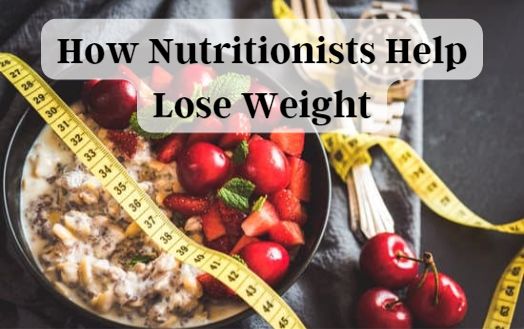Want to improve your life but don’t know how?
Nutritionists may help. Nutritionists educate individuals and groups about food and health. I’ve worked with a nutritionist for years and can attest to the amazing results. We’ll discuss nutritionists’ services so you can decide if they’re right for you.
Nutritionists start with healthy eating counseling. These meetings will evaluate your diet and recommend which foods to eat more of and which to avoid. They may offer portion control, meal planning, and other healthy eating advice. If you have diabetes or high cholesterol, they may recommend supplements or vitamins.
Nutritionists help clients create a plan to reach their goals. This includes setting safe weight-loss and energy-boosting goals. A qualified expert can teach anyone how to balance their life and live a happier, healthier life. If you want to know what are the services offered by a nutritionist, read this informative article.
Definition Of A Nutritionist
As a nutritionist, I’ll explain my services. Registered dietitians are qualified to provide nutrition care and advice. Nutritionists specializing in nutrition counseling, education, and health services. They customize plans based on age, lifestyle, medical history, and goals using evidence-based food, health, and nutrition research.
Nutritionists know how to optimize nutrients—the energy sources of food—for better health. We teach healthy eating habits to help people choose diets. We also recommend vitamins and minerals for specific diets. Nutritionists use their knowledge to help patients adopt healthier lifestyles through better eating habits and well-balanced meals.
Nutritionists work with patients to find sustainable ways to improve their health, whether it’s weight loss, disease prevention, or just feeling more energized. The next section will discuss nutritionists’ “areas of expertise,” which vary by client.
Areas Of Expertise
I provide many services as a nutritionist. My specialties include:
- Nutrition Education: Promoting healthy eating, food groups, and meal planning.
- Medical Nutrition Therapy: Individualized nutrition plans for medical conditions or special diets.
- Nutritional Information: Keeping up with nutrition research and helping people understand how diet affects health.
I work closely with each client to assess their needs, create an effective plan, provide ongoing guidance and support, and help them achieve their goals. My goal is to empower my clients by giving them the tools to make informed health and wellness decisions. With this knowledge, they can manage their nutrition and improve their health.
Dietitian vs. Nutritionist

As a health enthusiast, I’m often asked: What’s the difference between dietitians and nutritionists? Since they provide different services, this is crucial. Dietitians provide evidence-based nutrition advice for diabetes, hypertension, weight management, food allergies, and more. Their clients can also get customized nutrition plans.
However, nutritionists promote wellness through healthy eating and lifestyle changes. Nutritionists know diet, sports, and holistic nutrition. Rather than medical diagnosis or treatment, they offer personalized nutritional assessments and guidance to help people make healthier choices. They may also collaborate with schools and community groups to improve nutrition education.
Dietitians and nutritionists can help people achieve optimal health and well-being, in my experience. One creates customized meal plans for clients, while the other educates people on healthy eating and living. Both professionals have valuable skills that can be used together to provide quality healthcare information on proper dieting. Thus, let’s examine these two professionals’ services.
Types Of Services Provided
I help people meet their nutritional needs as a nutritionist. These include individualized nutrition programs, healthy eating advice and support, sustainable lifestyle changes, and nutrition education.
I create personalized diet plans that take age, gender, activity level, pre-existing medical conditions, and more into account.
I want to make a plan with achievable short- and long-term health goals.
Nutritional counseling establishes realistic expectations by breaking complex tasks down into manageable steps. If someone wants to eat healthier but doesn’t have time to plan or cook, I’ll suggest making big batches of meals on the weekend so they have meals for the week.
We will evaluate your diet and lifestyle to find areas for improvement. From there, you can create a plan to meet your nutrition goals with lifestyle-friendly elements.
Health Assessment Process
As mentioned above, nutritionists offer many services to improve health and well-being. One is health assessment. The nutritionist evaluates an individual’s diet and lifestyle to provide tailored advice on how to improve.
The nutritionist first gathers information about the person’s diet, physical activity, and health concerns. They will then develop a personalized plan for that individual, including nutritional goals and recommendations. It may also include lifestyle changes.
Nutritionists assess stress management, sleep quality, and environmental factors in health assessments, not just diet. They can then provide holistic nutrition advice to improve the person’s overall health. Having said that, each person is unique, so nutrition plans and programs must be tailored to them.
Now that we’ve covered nutritionist services and health assessments for individualized diets, let’s talk about nutritional therapy.
Nutritional Therapy

I offer each client individualized nutritional therapy services. My nutrition team and I address weight management, digestive issues, chronic fatigue, food sensitivities and allergies, diabetes, heart disease, cancer recovery, and more.
- Assess diet and lifestyle choices.
- Providing evidence-based nutrition advice tailored to the individual
- Developing a customized diet and supplementation plan to improve health.
- Advising lab testing (if appropriate).
- Providing ongoing support.
Accurate nutrition information is crucial for healthy decision-making. I also teach nutrition and wellness basics. I aim to teach clients skills they can use beyond our sessions. Nutritionists know how to help people take charge of their health.
I hope to empower people by providing science-backed information and practical daily strategies to achieve long-term optimal wellbeing by understanding how we interact with our environment and making healthier habits affordable for everyone.
Education And Training For Nutritionists
I studied nutrition and dietetics as a nutritionist. I had to complete an accredited course with supervised practice to become a registered dietitian. I learned to provide safe and effective nutrition services.
I also studied diabetes education, sports nutrition, food safety, public health nutrition, disease prevention, and health promotion. These courses taught me how to help clients achieve their health goals through diet.
Current nutritional trends inform my advice on how to promote healthy eating habits for lifestyle changes or therapeutic diets for chronic illnesses or medical conditions. With my knowledge of nutrition science, diet therapy, and behavior change, I can make personalized recommendations. Next, nutritionist benefits…
Benefits Of Working With A Nutritionist

Nutritionists are beneficial. As part of your health team, they can help you set and meet long-term food and nutrition goals. Nutritionists offer tailored advice based on their clients’ lifestyles and preferences. Registered dietitians and certified nutritionists provide the latest dietary information, nutritional services, and evidence-based resources.
Nutritionists know food science, biochemistry, physiology, psychology, public health, and physical activity. They provide holistic health plans based on how food affects our bodies. Nutritionists consider meal planning and long-term strategies (such as developing healthier eating habits). They advise on supplements and alternative therapies to supplement health offers.
I’ve learned how to nourish my body and understand its needs from working with a nutritionist. Partnering with a qualified professional can improve one’s overall well being due to their knowledge and customizable approach to meeting goals. When considering a nutrition team member, understanding service costs will be crucial.
Cost Of Services Rendered
Nutritionist services are often expensive. Dietitians offer many services at different prices depending on their expertise. Some work with a nutrition team to provide family or individual nutrition advice. Some offer free food information.
Each person must decide what nutrition service they need and how much they are willing to pay for it. When comparing prices, keep in mind that some health insurance plans include nutritional counseling and education.
Before choosing a practitioner, check out their websites, compare their services, and discover what are the services offered by a nutritionist.
Finding The Right Nutritionist For Your Needs
Consider these factors when choosing a nutritionist. First, verify the practitioner’s nutrition and health management credentials. Second, ask if they have experience with your medical or dietary needs so they can customize plans. Thirdly, check out their services. Many nutritionists offer meal planning, nutritional advice, and overall health assessments to maximize your care.
Nutritionists can help with weight loss, food intolerance testing, and lifestyle changes like exercise. Depending on your situation and health goals, they may recommend supplements or vitamins. To find a nutritionist who meets your physical and emotional needs, research all your options. This way, you’ll know you’re getting the best care from an experienced professional who understands your situation. We’ll then examine food allergy and intolerance testing to improve health.
Food Allergies And Intolerance Testing

I test food allergies and intolerances as a nutritionist. This nutritional care helps my clients identify foods that may be causing adverse reactions. It lets me customize a healthy diet without harmful ingredients for each person.
I use different food allergy and intolerance testing methods depending on my clients’ needs. I may suggest an elimination diet to identify trigger foods or skin prick tests if an allergy is suspected. I also have lab tests that measure IgG antibodies and other markers in response to dietary triggers. These tests provide accurate results quickly, allowing us to begin a personalized meal plan.
My main goal is to give tailored advice that helps people overcome food sensitivities while still enjoying healthy eating, regardless of the test. My clients can make informed diet choices and achieve optimal health by understanding the causes of their physical symptoms. This knowledge lets them confidently try new cuisines.
Sports Performance Enhancement
I customize sports performance enhancement services as a nutritionist. My approach helps athletes make healthy nutritional choices. My nutrition plans help clients reach their athletic potential and maintain good health.
- Customized meal planning
- Macronutrient composition advice
- Vitamin and mineral education for peak performance
I coach recreational athletes and professional athletes.
My goal is always to make sure they have enough fuel and energy to reach their ultimate sporting and life goals.
We can tailor a nutrition plan to your lifestyle and activity level using a holistic approach. This personalized approach will help you succeed on and off the field.
Weight Management Programs

Weight management programs will follow after I explain sports performance enhancement programs. Nutritionists and dietitians can help people with various health conditions improve their health by providing personalized meal planning and lifestyle changes related to nutrition and physical activity. They’ll tailor a wellness plan to the person’s needs and goals. Nutritionists teach about food and how to make healthier choices when shopping, cooking, and eating out. Weight management programs encourage healthy habits like eating a balanced diet, practicing portion control, drinking lots of water, exercising regularly, and getting enough sleep. They may also counsel on self-image and body image issues. Nutritionists use these customized plans to help clients achieve long-term weight loss success.
A nutritious meal plan is essential for optimal health. Meal planning helps you eat a variety of nutrient-dense foods while adhering to medical restrictions. It also lets you be creative when cooking, so you don’t get bored. A nutritionist or dietitian, regular exercise, and enough sleep can help people achieve their wellness goals.
Meal Planning Guidance

Nutritionists help clients plan meals. This involves teaching them how to choose healthier foods and prepare balanced meals. I can tailor a plan to their dietary needs, likes, and dislikes to ensure they get all the nutrients they need for optimal health.
My meal planning advice includes:
- Evaluating current diet and lifestyle habits
- Educating clients on nutritional needs based on age, gender, and activity level and tailoring a meal plan to their goals
- Tracking progress and adjusting plans
Dietitians and clinical nutritionists collaborate with nutritionists. I may refer a client with special medical or psychological conditions to an outpatient nutrition specialist for more advanced care. Nutritionists work with primary care physicians to ensure that diet changes do not interact with medications.
We can achieve goals safely by working together. Given this, professional meal planning advice is crucial for long-term health. Let’s see how clinical research can improve our nutrition science knowledge.
Clinical Research Participation
Nutritionists participate in clinical trials. Nutrition aids patients’ medical conditions. I can provide medical care with insurance through this service. I can advise patients on outpatient nutrition studies. I’ll discuss their diet and lifestyle habits during these sessions to develop health and wellness strategies. I will also assist them in developing personalized meal plans.
Clients benefit from my clinical research participation service by eating healthier and changing their behaviors. I hope to empower people to make long-term positive changes by educating them about nutrition, physical activity, cooking, and more. Through data collection and analysis, I hope to help advance medical research by participating in nutrition science studies.
My clinical research participation services benefit me and the patient. Its evidence-based practices offer a once-in-a-lifetime chance to learn something new on our path to better health.
Final Thoughts
After doing some research, I’m interested in nutritionist services. A nutritionist can recommend foods and supplements based on my lifestyle and needs. I’m excited to improve my health.
For those in rural areas or who don’t have time to travel, many nutritionists offer online consultations. This means I can get good professional advice wherever I live.
Anyone looking to improve their diet or health may benefit from seeing a nutritionist. It’s clear they offer many services, so if you’re thinking about living healthier, talk to a nutritionist. Now you are knowledgeable of what are the services offered by a nutritionist.
FAQ
Does A Nutritionist Offer Online Services?
Nutritionists are sought out for health and nutrition advice. Online nutritionist services are often asked about.
Yes. Nutritionists offer phone, video, and email consultations. This makes home-based professional advice easier than ever. Nutritionists can also post articles and resources on their websites about their services and nutrition.
Some nutritionists offer office visits for those who prefer them. These appointments can cover meal planning, lifestyle changes, food nutrition, and other healthy eating topics. To achieve their goals, clients must make informed food choices.
There are many diet and health professionals to choose from. Before deciding on a path, one must thoroughly research all options.
How Long Does A Session With A Nutritionist Typically Last?
How long is a nutritionist’s appointment? To fit your schedule, you must know how much time these professionals spend on clients. The type of service and client needs determine how long a session will last. A preview:
- Consultation: In this initial 60–90-minute meeting, the nutritionist will ask about your lifestyle and diet to create an action plan to help you reach your health goals.
- Follow-up Visits: Depending on the complexity of the case and any complications or obstacles encountered during treatment, weekly or monthly 30-minute to 1-hour follow-up visits may be required.
- Nutrition Therapy Sessions: If dietary changes are needed, longer sessions usually occur every 2–4 weeks and last 45 minutes to two hours, depending on the advice.
Most people find that a qualified nutritionist helps them achieve their wellness goals. Nutritionists assist people in improving their health through customized plans and regular checkups. If you’re considering nutritional counseling, remember that lasting changes often take more than one session.
Are Nutritionists Able To Provide Advice On Vegan Diets?
I wonder if nutritionists can advise on vegan diets. Since veganism is becoming more popular, there are so many options that it can be hard to start. Fortunately, most nutritionists have experience advising on plant-based diets and veganism.
Nutritionists can help vegans get enough vitamins and minerals and suggest healthy, tasty recipes. They can also answer questions about food groups, nutrient deficiencies, and supplementation, ensuring you get everything your body needs for optimal health. Nutritionists can tailor plans for athletes and people with medical conditions by understanding healthy vegan diet principles.
An experienced professional can help with grocery shopping and portion control when switching to a plant-based diet. Before changing your diet or lifestyle, consult a nutritionist because everyone’s nutritional needs are different. A nutritionist can help you maintain a healthy vegetarian or vegan diet.
Are There Any Dietary Supplements Recommended By Nutritionists?
Nutritionists’ supplement recommendations intrigue me. Their nutrition advice is based on years of experience. I asked some registered dietitians about general health supplements. They agreed that everyone should take certain vitamins and minerals daily.
EPA and DHA were the most recommended supplements. This fat is found naturally in fish oil and as a supplement from algae or other plants. Omega-3s support brain and cardiovascular health. Omega-3s may also help depression and anxiety sufferers.
Experts also recommend multivitamins. These products typically contain vitamin C, vitamin B6, folate, magnesium, zinc, iron, and more. Multivitamins supplement dietary sources when they aren’t enough, especially during illness or stress when nutritional needs increase.
If you want to stay healthy and get your daily nutrients without having to remember to eat every food group at every meal, talk to a professional about vitamin and mineral supplementation tailored to your needs.
Are Nutritionists Qualified To Help With Mental Health Issues?
As a health-conscious person, I wonder if nutritionists can treat mental health issues. Since our bodies and minds are interconnected, we should take care of both for optimal health.
Nutrition and mental health have garnered attention in recent years. Nutritionists can help you manage stress and improve your mood by changing your diet and lifestyle. Highlights:
- Nutritionists may suggest supplements or meal plans to improve mental health.
- Working with a nutritionist can also improve food selection and portion sizes, reducing cravings and improving health.
- Nutritional counseling supplements medication and psychotherapy.
I think physical and mental health should always be considered together. I recommend consulting a nutritionist for mental health advice. They can explain how small dietary changes can improve psychological balance.




